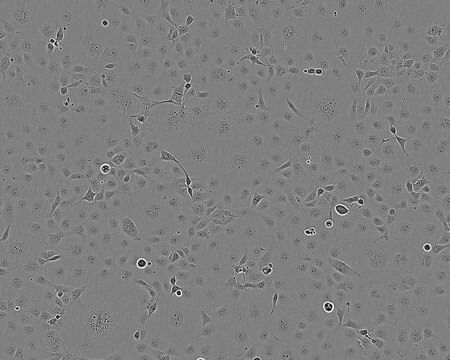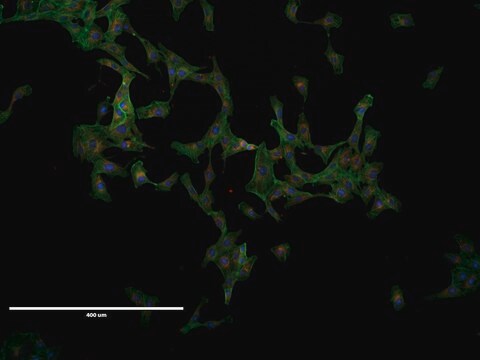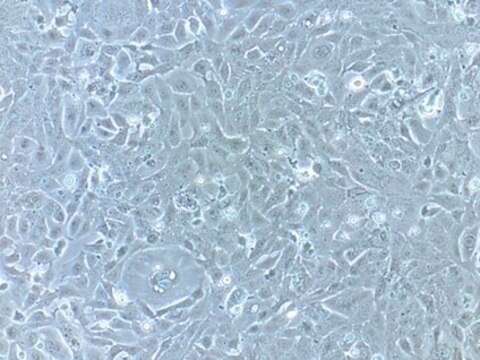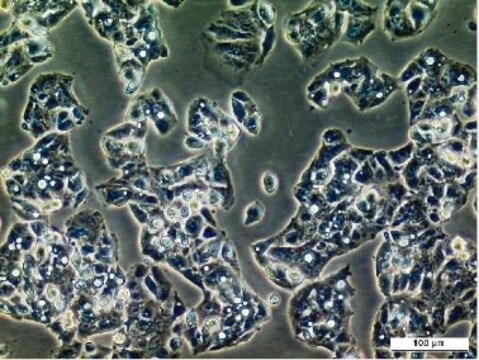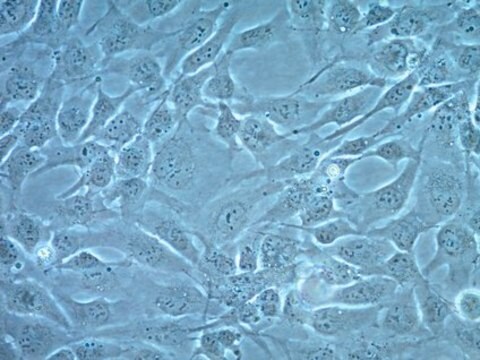COS-1 Cell Line
88031701, African green monkey kidney, Fibroblast
About This Item
Polecane produkty
product name
COS-1 Cell Line, 88031701, from African green monkey kidney, SV40 transformed, Convention on the International Trade in Endangered Species of Wild Fauna and Flora (CITES)
pochodzenie biologiczne
African green monkey kidney
tryb wzrostu
Adherent
kariotyp
Not specified
morfologia
Fibroblast
produkty
Not specified
receptory
Not specified
metody
cell culture | mammalian: suitable
Warunki transportu
dry ice
temp. przechowywania
−196°C
Pochodzenie linii komórkowej
Opis linii komórkowej
Zastosowanie
pożywka hodowlana
Rutyna subkultury
Inne uwagi
Certyfikaty analizy (CoA)
Poszukaj Certyfikaty analizy (CoA), wpisując numer partii/serii produktów. Numery serii i partii można znaleźć na etykiecie produktu po słowach „seria” lub „partia”.
Masz już ten produkt?
Dokumenty związane z niedawno zakupionymi produktami zostały zamieszczone w Bibliotece dokumentów.
Nasz zespół naukowców ma doświadczenie we wszystkich obszarach badań, w tym w naukach przyrodniczych, materiałoznawstwie, syntezie chemicznej, chromatografii, analityce i wielu innych dziedzinach.
Skontaktuj się z zespołem ds. pomocy technicznej
